Before Surgery
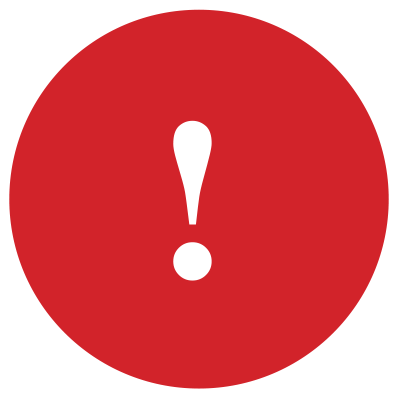
Please let us know if you do not have any of the below
- Family doctor
- Cardiologist
- Recovery Support Person: the person who will help you when you get home. We recommend someone is available to help you for the first week (day and night) you are at home.
- Driver: the person who will pick you up from the hospital at 11 a.m. on the day you are discharged. You will also need transportation to and from any appointments.
- Power of Attorney for Personal Care: the person you have appointed with the legal authority to make medical decisions on your behalf if you are unable. If you do not have a Power of Attorney for Personal Care, a substitute decision maker will be appointed for you in accordance with the law
Pre-surgery classes and appointments
Cardiac pre-operation education class
This class will help you learn about what to expect and how to manage your care after your coronary artery bypass surgery. You will meet some of the team members involved in your after-surgery care, as well as a volunteer who had heart surgery at Sunnybrook. Family members or caregivers are encouraged to attend and participate in the class, as they play a key role in your recovery.
Your surgeon’s office will provide you with a date to attend the class. It will likely be scheduled on the same day as your pre-anesthesia assessment appointment, and any pre-operative testing your surgeon may request such as blood testing, chest x-ray, or electrocardiogram (ECG).
Please bring the following with you to your pre-operation education class:
- The physical copy of this guide book
- Family, caregivers, or anyone who will be participating in your recovery.
- Any questions or concerns you or your family may have about your upcoming surgery or recovery
Pre-anesthesia assessment
At your pre-anesthesia appointment, our team will make sure you are fit and safe for surgery.
Your surgeon’s office will tell you the date and time of the appointment. It will likely be scheduled on the same day as your cardiac pre-operation education class and any pre-operative testing your surgeon may request such as a blood test, chest x-ray, or electrocardiogram (ECG).
During the assessment, a nurse will ask you about your medical history, the medications you take and will talk to you about any special needs you might have after your surgery. You may also meet with a pharmacist and the anesthesiologist who will be putting you to sleep in the operating room when you have surgery.
What do I need to do for my assessment?
Please check-in at B-wing, 1st floor, room 11 (B1 11).
The visit will take place in the Pre-anesthesia Clinic and will last 2 to 4 hours.
Please eat and take all your regular medications before you come to this appointment.
Please bring the following items to your assessment:
- The physical copy of this guide book
- Your Ontario Health Card
- The name and telephone numbers of your family doctor and any specialists who treat your medical conditions.
- All of your prescription and over-the-counter medications in the containers they came in. These include pills, inhalers or puffers, injections, eye drops, herbal medicines and vitamins.
- Only one family member or friend to the appointment.
Preparing yourself and your home
Preparing your body for surgery
Preparing your body begins 14 days before your surgery. Visit Sunnybrook's ambulatory pharmacy on the first floor of M-Wing to pick up your cardiac surgery package. The package contains a suppository and antibacterial soap that you are required to use in preparation for your surgery.
Maintaining a healthy lifestyle can help prepare your body for surgery and help with your recovery after your surgery. Eat heart-healthy meals and continue your regular exercise routine, as advised by your doctor. Stop exercises that bring on signs of your heart problems.
14 days before surgery

Medications
Stop taking any herbal remedies, homeopathic medicines or other over-the-counter medication unless instructed by your surgeon.
If you take anticoagulants or antiplatelet medications (also known as blood thinners), your doctor or the pre-admission clinic nurse or pharmacist will tell you when to stop these medications.
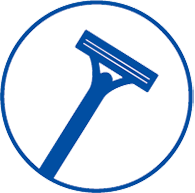
Hair removal
Stop shaving or waxing body hair from the neck down.
1 day before surgery

Antibacterial soap
Use the special antibacterial soap prescribed to you and wash from your neck down.
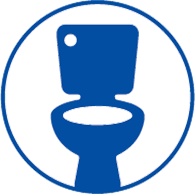
Suppository
Insert the suppository provided to you in your cardiac surgery package into your rectum around 8 p.m. You can expect a bowel movement within an hour after taking the suppository.

Sleep
If you think you may have trouble sleeping, speak with your family doctor about taking a sleeping pill. Feeling anxious or afraid is normal. Sometimes talking to someone helps to decrease your worry.
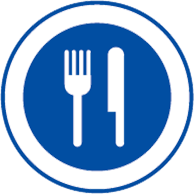
Food
DO NOT eat solid food after midnight.
Morning of surgery
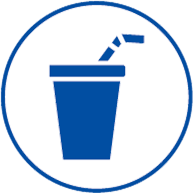
Drinking
DO NOT drink for 4 hours before your surgery. You may rinse your mouth with water or brush your teeth, but do not swallow.
You may take a small sip of water if you are directed to take medication before surgery.

Antibacterial soap
Use the special antibacterial soap prescribed to you and wash from your neck down. DO NOT use perfume, cologne, or other scented hair and body products.
Sunnybrook is a fragrance-free hospital.
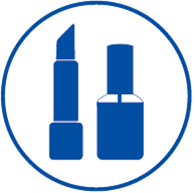
Makeup and accessories
Remove all make-up, nail polish, jewelry and body piercings.
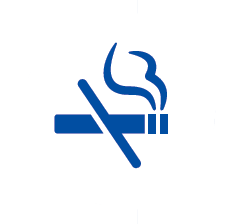
Stop Smoking
Smoking can affect your healing and make your chances of getting an infection after surgery higher. Try to stop or smoke less before your surgery. Speak to your doctor or nurse if you would like to quit smoking or you need help with withdrawal symptoms after your surgery. You may also visit smokershelpline.ca.
Preparing your home for your recovery
- Precook enough meals for several days and freeze in single servings. You may want to arrange for family or friends to help you with your meals after your surgery.
- Arrange for someone to help with physical tasks when you are at home, like cooking, home maintenance and laundry. You will not be allowed to lift over 2.3 kilograms (5 pounds) for at least six weeks.
- Make any necessary bathing arrangements: You will only be allowed showers for six weeks, no baths.
- Arrange for someone to drive you to your appointments.






